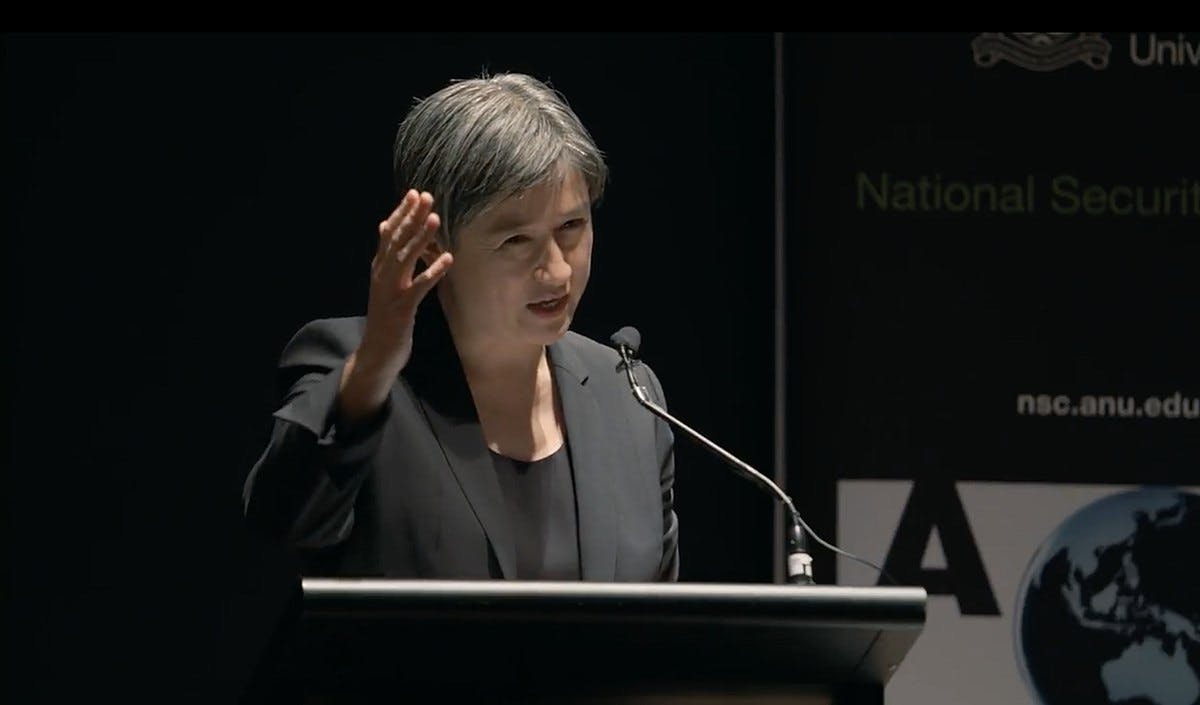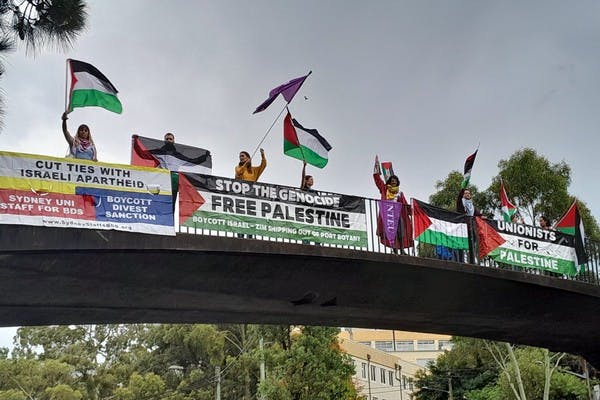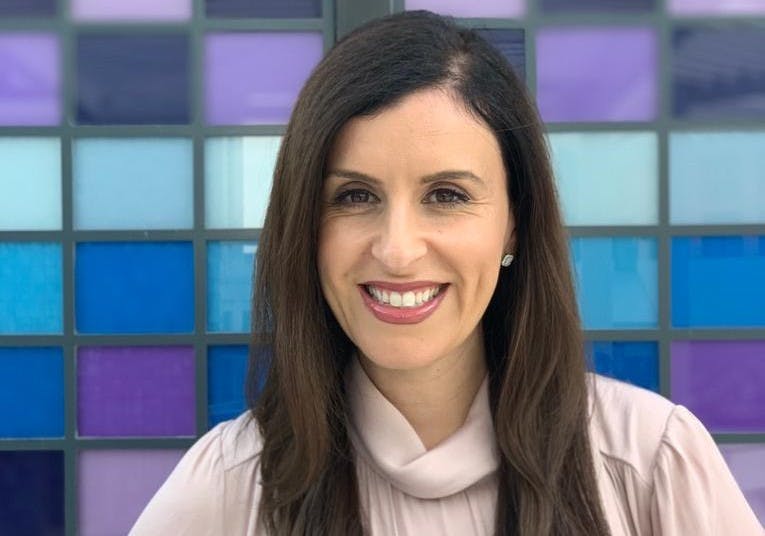Published: 29 January 2024
Last updated: 21 March 2024
No longer restricted by the battle to bring her abuser to justice, DASSI ERLICH has published the full story of her brutish home and the ultra-Orthodox community that failed her. She talks to MICHAEL VISONTAY.
Dassi Erlich has been through so much trauma that it’s a relief to see her looking so well. As we sit down together in a cafe in Elsternwick in the heart of Melbourne’s Jewish community, she radiates a calm confidence and even smiles occasionally.
It’s only been six months since Malka Leifer was sentenced to 15 years in prison for sexually abusing Dassi and her sister Elly Sapper. The verdict ruled a line under an awful chapter of her life, but she says it will take a long time for her to come to terms with everything that has happened.
We are meeting to talk about her much-anticipated memoir, In Bad Faith, published this week. Dassi’s tenacious campaign to bring Leifer to justice made her a national and even international figure, but only as a tenacious advocate, focussed on one goal.
The memoir presents a fuller portrait of her as a daughter, sister, wife and mother, the victim of an abusive family, an unscrupulous principal and an uncaring ultra-Orthodox Jewish community. In Bad Faith tells a story about her family life that is just as heart-rending as the one that has made international headlines and puts Leifer’s abuse of the sisters into a wider context.
Just as it took courage to expose Leifer, it has taken courage for Dassi, now 36, to reveal the story of her family, which has shadowed her all her adult life.
She hopes that by writing her book, she might help others who have faced similar problems. “When I read other people’s stories, it helps me feel less alone. You know what someone else has gone through and you understand the way they managed to get through that and the choices they've made. I'm hope that I'm able to do the same. But as well, stories are the way that we change and grow as a society. And I felt this was a very important story to share.”
by the time we had a better understanding of our parents' abuse, it was something to be ashamed of and to hide.
Dassi Erlich was born the middle of seven children - five sisters and two brothers - into an ultra-Orthodox Jewish family and raised in the Adass community in Melbourne. Her mother was Israeli-born and her father was English; neither particularly religious when they met in England. But soon after they moved to Melbourne to start a new life to raise their family, Dassi’s mother embraced the Adass way of life, and her husband followed.
The children were raised within the strict values of Adass but in addition to this stifling environment, they were physically and emotionally abused by their parents - their mother primarily, but also her father, whom she says was “dominated and complicit”.
Dassi’s memoir reveals the extent of her mother’s cruelty and abuse of all her children, especially the daughters. It included repeated physical abuse for the smallest of infractions (Dassi was slapped when she accidentally banged the vacuum cleaner against the walls), the regular withholding of food as punishment, and physically throwing her children out of the house, then taking them back in again later, which created profound insecurity and fear among all of them.

“When we were little, we wouldn't understand what was happening and we thought it was normal,” Dassi explains. “By the time we did realise it wasn’t, we thought it was our fault. And then by the time we had a better understanding of it, it was something to be ashamed of and to hide as much as possible because we didn't want to be seen as abnormal within the community.”
She says neither parent showed the children any love. Yet they felt conflicted about discussing their family life with anyone outside because of the edict they had learned from the Ten Commandments to “honour thy father and mother”.
“My father was scared of my mother. As children, we pitied him for being forced to do these things, particularly the physical abuse. But now as an adult, I have a completely different understanding of that. He wasn’t able to stand up for his children.” Dassi discloses that her father gave her “inappropriate hugs” as a young girl, something that even now she is still processing and will not discuss in any further detail.
Malka Leifer found out about their family nightmare when Dassi’s older sister Nicole opened up to her during their conversations at school. Dassi says the way that Leifer used this knowledge and abused her authority to manipulate the three sisters hurt her even more than her parents’ abuse. “My parents didn’t give me any love. I felt that I just had to survive and get through that. But I really let my guard down when it came to Leifer. I really, really believed that she loved me.
I really, really believed that Leifer loved me. The betrayal of that love was so much greater than the betrayal of my parents.
“The betrayal of that love was so much greater than the betrayal of my parents. From a very young age I didn't have expectations of them, whereas I had this expectation of Leifer and believed her. There was a part of me that punished myself for so long for believing that - and that's had a big impact on my life.”
Leifer exploited the girls’ vulnerability for four years to indulge her twisted sexual desires. It started with “private lessons” which moved from the school to her home when no-one else was there. Leifer’s abusive behaviour was helped by the girls’ profound naivety about sex.
“I tried to build a relationship with another teacher, and spoke with her privately several times, but I could not think how to ask her if [Leifer’s] touch was wrong,” Dassi writes. “A girl’s body was a secret: all of her body, from her collarbone to her feet. I didn’t know the words for breast or vagina. I didn’t know I had a vagina. We didn’t speak about our bodies; our religion discouraged it. It was much easier to pretend it was all okay.”
The book delivers a chilling sense of Leifer’s premeditated and sustained behaviour but avoids going into granular detail. That responsibility had already been addressed by the trial judge in his summing up. Dassi’s greater aim is to show the impact and legacy of her school principal’s behaviour.
The long-term consequences included difficulties in her marriage and in raising her young daughter, emotional fragility, and descent into self-harm that led to periods in mental health clinics. These issues continued up to and during Leifer’s trial. Elly had a miscarriage and Dassi was readmitted to a clinic while the case was being heard.
Even at the time, Dassi suspected that Leifer was also abusing her elder sister Nicole but the three sisters did not discuss their experiences, and did not know what was happening to each other.

While the jury found Leifer guilty on 18 charges in relation to Dassi and Elly, it acquitted her over five other charges in relation to Nicole. It was a devastating result for Nicole and remains a mystery to Dassi and the family. “I’ve thought about it a million times. It doesn't make any sense. It wasn't about whether they believed her or not. It was about something else.” But she takes solace from the broad public perception that Leifer did abuse all three sisters.
The fact that all three suffered similar experiences, both at home and at school, raises a delicate question about the memoir. It’s Dassi’s book but is she also speaking, in some ways, for her sisters?
A girl’s body was a secret. I didn’t know the words for breast or vagina. I didn’t know I had a vagina. We didn’t speak about our bodies.
“They knew that I was doing the book and they gave me their blessing. I asked them for permission about writing about our childhoods because although the Leifer details had been out there, the childhood stuff was not something that we had talked about in much detail.
“I think it was a little bit difficult for my sisters. The Leifer campaign is all from my perspective, and they went through those events as well. But there wasn't space to write from their perspective. It's my story. So maybe that was a tiny bit difficult for them, but not in a way that caused any tension.”
Dassi’s parents disowned all their children and cut-off contact with them many years ago. Although the siblings have been able to move on with their lives, the estrangement erupted into an open wound when their older sister Dalia died tragically due to complications from a medical procedure in 2017.
The siblings didn’t know where their parents lived and had to track down their rabbi to get an address to tell them the news. “That was the last time I had contact with my mother. I don't know if their rabbi was aware of what was going on at home, but I've never heard from him.”
When her father died two years later, she messaged her mother. “She blocked the call.”
Did her parents know about Leifer's abuse at the time it was taking place? “Not as far as I know. My mother knew we were all close to Leifer. When the news stories started in 2008, I think she may have had an understanding. But by that time, we weren't in communication.”
How does the ultra-Orthodox community view her mother? “I don't know. I think she spun a persuasive narrative that Leifer destroyed the relationship through her sexual abuse. She will come out publicly and say she wasn't abusive. It will be interesting to see if the book has any impact.”
The Adass community has not been supportive. “I worked on the apology for a year with them and that was pretty dismal. There were a lot of rumours going around about me. I wasn't a very welcome person in the community.”

As she recounts and reflects on the pain of her past, Dassi remains poised, her voice even, her answers measured. She seems strong and displays a quiet optimism about her future. “I am no longer in survival mode. I can think about my future, which I haven't been able to do for a long time. I’m pretty proud of myself. I feel very different from the person I once was.
“Throughout the campaign and before that I was constantly fighting against something internally, against acknowledging the trauma of my childhood and dealing with it. I don’t feel that anymore. I feel a sense of inner peace.”
She does not know yet what she wants to do with her future. She is keen to help those who reach out to her for help with similar problems, she may try to renew her nursing registration but for the time being she is focussed on the book and sharing her story.
She and her siblings are close and they spend a lot of time together. She has the strong family unit that was denied to her as a child. Her own daughter is currently staying with her ex-husband and the family celebrated her batmitzvah last year, during one of the many delays in the trial.
Having emerged from the restrictions of Adass and the abuses of her home and school, she is uncertain now of her attitude towards Judaism and the Jewish community. “I'm still working it out. It's something I fought against for a long time. I rebelled against it, then ignored it, then didn’t have the space to think about.
“I see myself as secular. I have an appreciation for some parts of Judaism. I see myself as a Jewish woman. I do participate in certain religious holidays because sometimes that's when my family will come together. We'll get together for Seder, at Pesach. Occasionally my siblings and I will make a Friday night meal together. It’s not something we do regularly.
“What do I believe in and what makes or doesn't make sense to me? That's something I'm still discovering."
In Bad Faith is published by Hachette Australia.





Comments
No comments on this article yet. Be the first to add your thoughts.